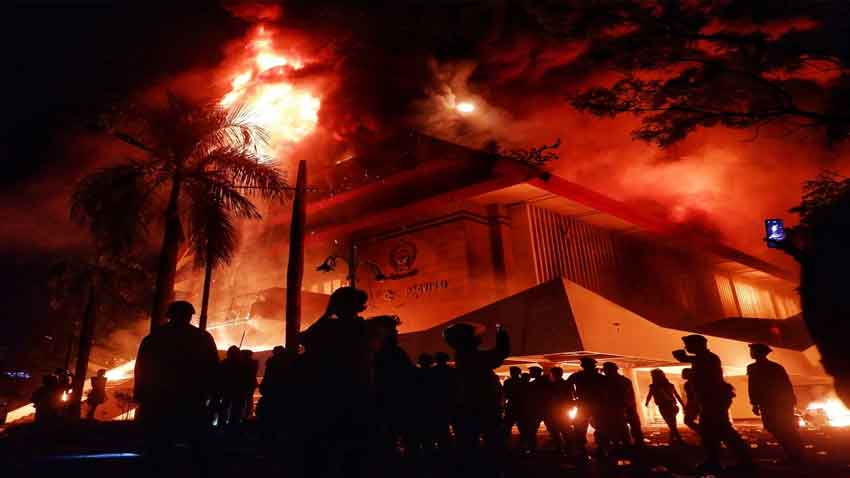
The violent demonstrations come just one day after three people were killed, raising serious questions about the government’s ability to control the unrest.
Local media reported that parliament buildings in West Nusa Tenggara, Pekalongan city in Central Java, and Cirebon city in West Java were set ablaze by angry crowds. The situation spiraled further when protesters in Cirebon looted parliamentary office equipment, leaving a trail of destruction.
In Pekalongan and West Nusa Tenggara, police fired rounds of tear gas in desperate attempts to disperse protesters, but the unrest showed no signs of slowing down.
The continuing violence marks one of the toughest challenges yet for President Subianto, with critics warning that failure to restore order could escalate tensions nationwide.
Protests began in Indonesia s capital Jakarta earlier this week over lawmakers pay, escalating on Friday after a police vehicle hit and killed the driver of a ride-hailing motorbike.
National police chief Listyo Sigit Prabowo said on Saturday the president ordered authorities to take firm action against protesters who violated laws.
The arson attacks on parliamentary buildings followed Friday s deadly protest in Makassar, capital of South Sulawesi province, that left at least three people dead and five injured.
Local media metrotvnews.com reported one further death from Makassar s parliamentary building fire, though this could not be independently confirmed.
Read more: Most Trump tariffs are not legal, US appeals court rules
The disaster management agency, in a statement earlier on Saturday, did not provide details on the fatalities in Friday s blaze, but state news agency Antara said the victims had been trapped in the burning building.
The agency said two people were injured after jumping out of the building to escape the fire.
Local media also reported protests in the holiday island of Bali at the police headquarters, and that police had shot tear gas at the demonstrators.
Jakarta s mass rapid transit said trains were not stopping at one station on Saturday near Friday s protest site, while services of Jakarta-owned Transjakarta bus were disrupted.
The fiery protests reflect more than anger over local issues—they represent deep frustration with governance, accountability, and political leadership. For President Prabowo Subianto, this is not only a test of law and order but also of his political credibility.
The burning of parliament buildings is a symbolic rejection of authority and sends a strong signal that protesters no longer feel heard by formal institutions. The looting in Cirebon further underscores how quickly peaceful dissent can turn into destructive chaos when tensions boil over.
If the government fails to address the underlying causes of discontent, the protests could expand beyond these provinces, threatening national stability and pushing Indonesia into an even greater political crisis.




